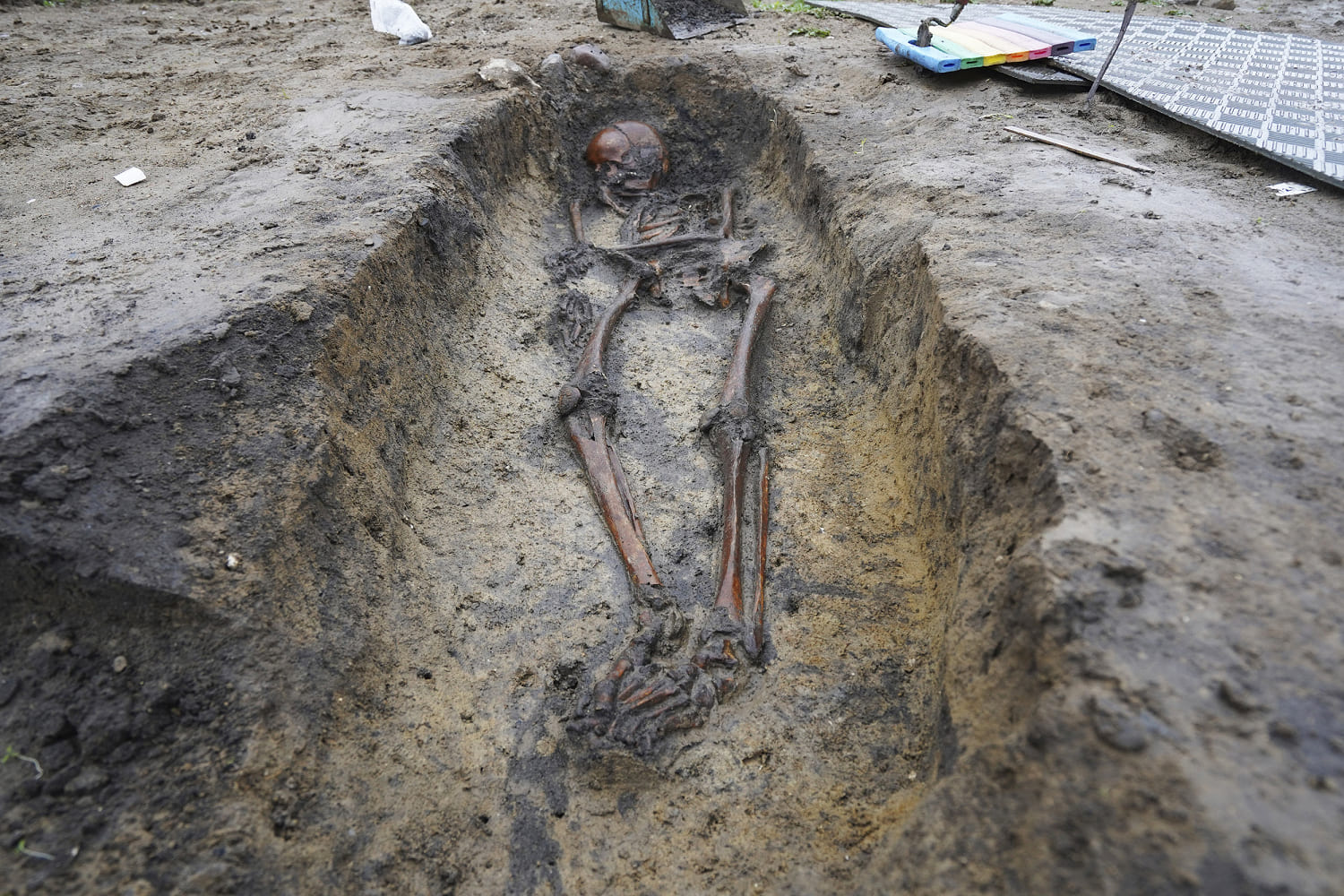Fifty well-preserved Viking-era skeletons are discovered in Denmark

The Vikings unearthed at Aasum most likely weren’t warriors. Borre Lundø believes the site was probably a “standard settlement,” perhaps a farming community, located 3 miles from a ring fortress in what is now central Odense.
The 21,500-square-foot burial ground holds the remains of men, women and children. Besides the skeletons, there are a few cremated bodies.
In one grave, a woman is buried in a wagon — the higher part of a Viking cart was used as a coffin — suggesting she was from the “upper part of society,” Borre Lundø told The Associated Press.
Archeologists also unearthed brooches, necklace beads, knives and even a small shard of glass that may have served as an amulet.
Borre Lundø said the brooch designs suggest the dead were buried between 850 and 900 A.D.
“There’s different levels of burials,” he explained. “Some have nothing with them, others have brooches and pearl necklaces.”
Archeologists say many of the artifacts came from far beyond Denmark’s borders, shedding light on extensive Viking trade routes during the 10th century.
“There’s a lot of trade and commerce going on,” said Borre Lundø. “We also found a brooch that comes from the island of Gotland, on the eastern side of Sweden, but also whetstones for honing your knife … all sorts of things point to Norway and Sweden.”
The burial site was discovered last year, and the dig, which started in April, ended Friday. Boxes of artifacts have shipped to Museum Odense’s preservation labs for cleaning and analysis.
Conservator Jannie Amsgaard Ebsen hopes the soil may also hold other preserved organic material on the backs of brooches or knife handles.
“We’re really hoping to gain the larger picture. Who were the people that were living out there? Who did they interact with?” she said. “It’s a little bit like a jigsaw puzzle: All the various puzzle parts will be placed together.”





